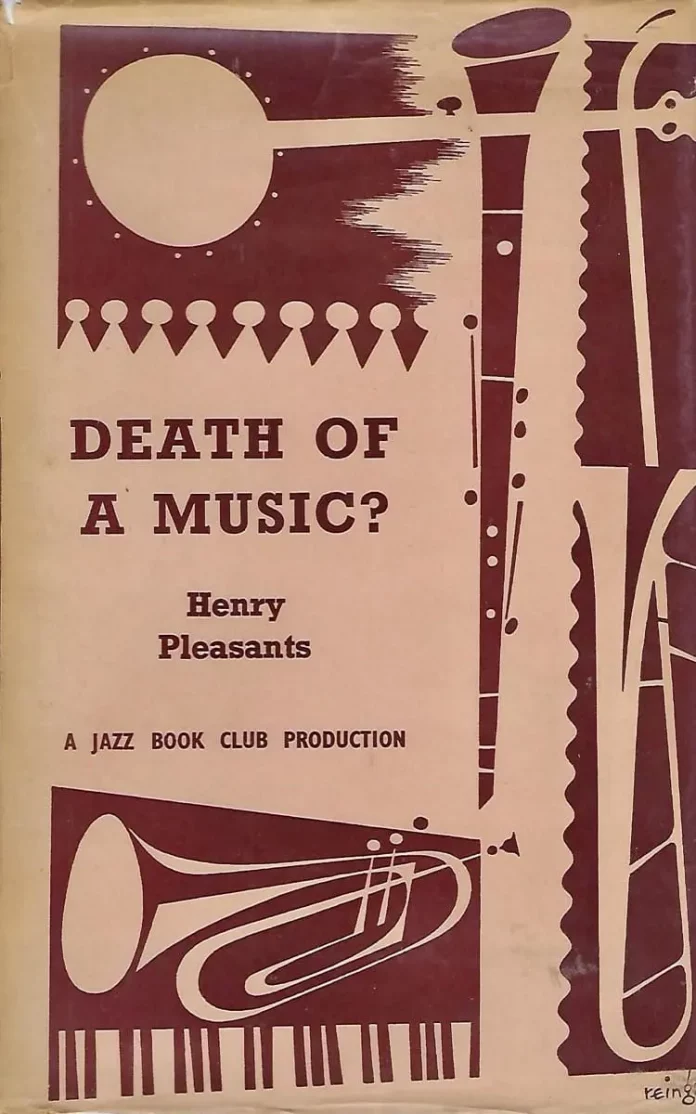Although a JBC production, this thought-provoking book is actually concerned with the whole music cosmos in the Western world to-day. Mr. Pleasants believes that what he likes to call contemporary ‘European’ music (modern atonal composition) is dying, if not already dead, through loss of contact with the listening public, and that the music of the future is ‘American’ music (jazz and its derivatives). So do I – and so, I imagine, will most readers of Jazz Journal; so in a sense the author will be preaching to the converted. However, I believe there is a lot of point in reading his book, if only because it is reassuring to have one’s intuitive predilections supported by intelligent appraisal.
Mr. Pleasants – about whom I know nothing but suppose to be American since he talks about ‘flutists’, not ‘flautists’ – is very much an intellectual. His book is, in consequence, fairly heavy reading, and I don’t mind admitting that I found myself reading many sentences in the early chapters at least twice. That I did not resent having to do so may be proof that his intellectualism is of the ‘genuine’, rather than the ‘pseudo’, order. Anyway, his book is quite short, and his message always clear.
I found little to quarrel with, either in his evaluation of the merits of the foremost contemporary academic composers or (most surprisingly) of those of the leading jazz composers and improvising performers. He is evidently well-informed about both musical extremes. One does, however, detect a certain woolliness in his discussion of the stuff in between. He sets a very high value on the American musical, asserting that ‘South Pacific’ is a more substantial piece of musical theatre than ‘The Barber of Seville’, and an astonishingly low one on 19th century German opera, coming down especially hard on Richard Wagner. On the other hand, he draws an interesting analogy between the evolution of Italian opera in the 17th century and the emergence of jazz in the 20th. In fact, the whole treatise might be summarised as an attempt to equate the 17th and 20th centuries in terms of musically historical importance.
Believing that, whether we like it or not, jazz and ‘serious’ composers are bound to become increasingly aware of each other’s presence as time goes by, I feel that the sort of questions which Mr. Pleasants seeks to answer in ‘Death of a Music?’, (which might have been equally appropriately titled ‘Birth of a Music?’, by the way) are going to arise sooner or later in the minds of all thinking music-lovers on both sides of the fence. Since his answers seem to be consistently sensible and based on an adequate knowledge of the entire, complex subject, I would certainly make his book compulsory reading at all music colleges (where an incredible amount of anti-jazz prejudice still exists amongst the students as well as the staff). As regards the already ‘converted’ who will see this review – well, I think I should recommend ‘Death of a Music?’ as highly desirable, if not absolutely essential, reading. It is certainly well worth 6/- to those in the Book Club. – Jeremy French
Death Of A Music? by Henry Pleasants (Jazz Book Club)
















